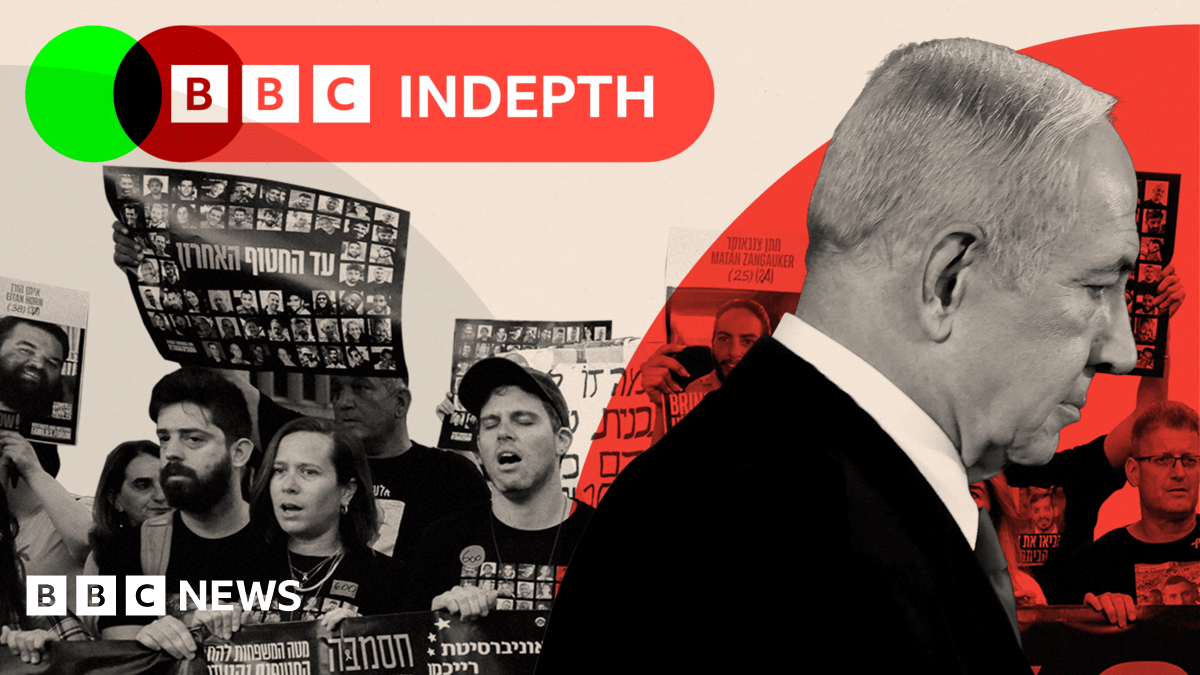After Ben-Gvir had left, a big crowd of his young religious supporters stayed on to pray in a long, covered arcade.
The sound of their prayers echoed off the vaulted stone roof. Two young women, Ateret and Tamar, sad about the religious commemoration but seemingly excited by the future, explained why they believed the Temple Mount was the heart of Judaism.
Ateret said the destruction of the Temples meant, “it’s like having a body, but your heart is not there.
“We just want to say that we want our hostages back. We want everybody to have peace. This is the heart of the whole world, not only our hearts. When God will be here the world will have peace.”
They explained they prayed every day for the construction of a third Temple on the site. “This is our house for thousands of years, and now we’re back here, we want our house.”
When I asked what would happen to the Muslim holy places that stand there now, they said they didn’t know.
Ateret and Tamar seemed to be gentle souls, suffused with religious fervour.
According to senior diplomatic sources, the nightmare for security services in both Israel and its Arab neighbours is that a violent Jewish extremist might try to damage al-Aqsa mosque to bring on the third temple, an act that would risk igniting the region.
